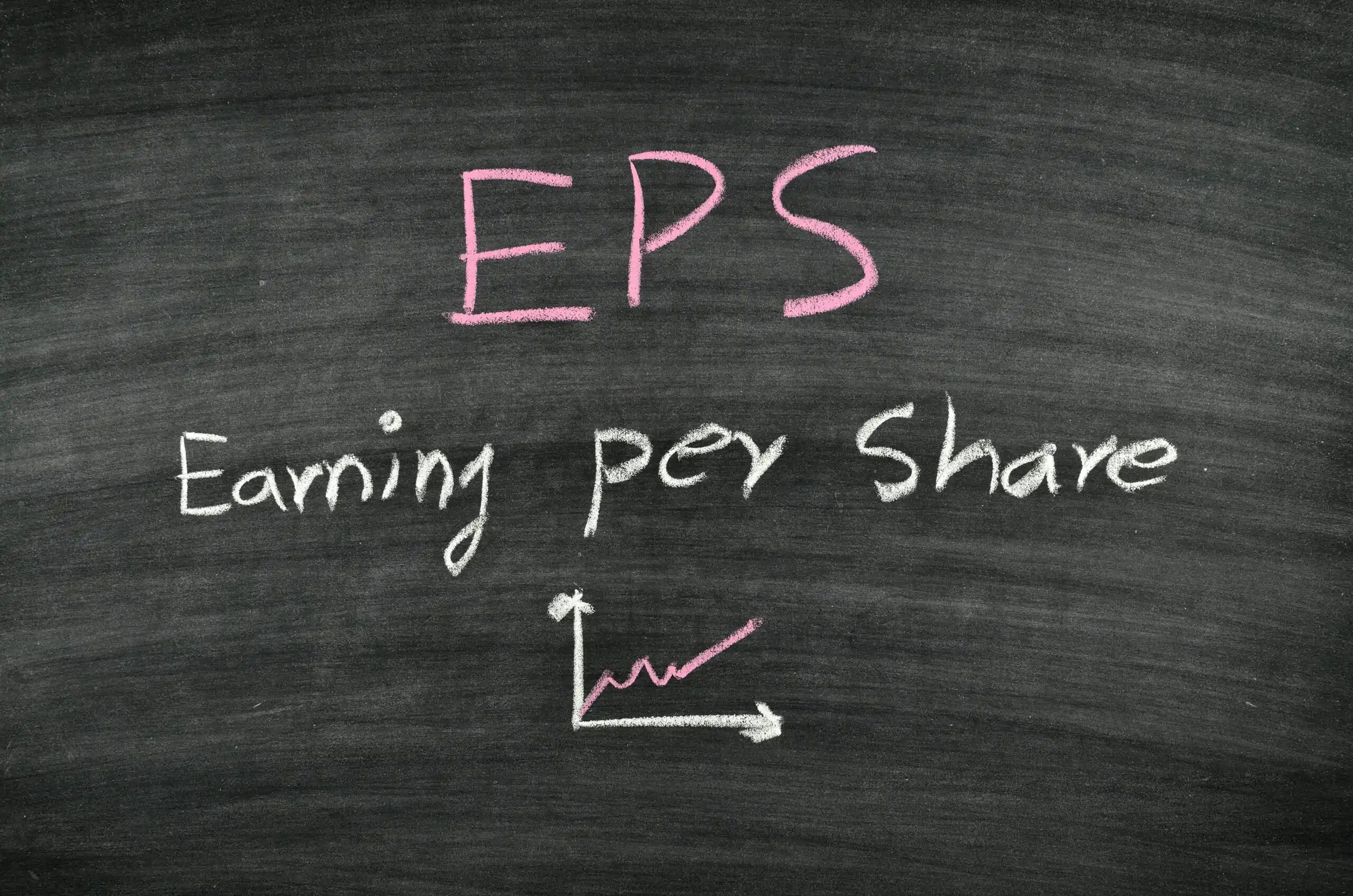Earnings per share (EPS) is a fairly simple calculation. It’s determined by dividing a company’s profit by the number of outstanding common stock shares. The outcome of that equation can help to determine a company’s profitability or likelihood of future growth. However, there are some other factors that can cause an EPS calculation to be adjusted. It’s fairly common for a company to factor in extraordinary items into an EPS calculation. Those are gains or losses that came from unexpected or infrequent event (like, say, a pandemic). An EPS calculation may also factor in share dilution. That’s when a company issues more stock.
A higher EPS generally means a company is more profitable. That typically means they are seen as good investments by stock market analysts. In this article, we break down earnings per share a little more. We’ll look at how you can use it to evaluate the overall financial health of a publicly traded companies.
Calculating Earnings Per Share
As we mentioned, calculating EPS is pretty straightforward. It’s determined by taking a company’s net income (also known as profits or earnings) and dividing it by the number of available shares. A company’s balance sheet or annual income statement can be used to find the number of common shares and the net income. Once located, it’s simply a matter of doing some easy math.
Let’s use some easy round numbers as an example. Let’s say that Apple reported 100 billion in profits over a 12-month period. With roughly 16.79 billion outstanding shares, Apple’s EPS would be $5.96 per share. Most stock market websites will show this number, already calculated for you, when you’re researching various investments.
How EPS Is Used
Earnings per share is universally used to determine a company’s profitability on an absolute basis. It’s also used to calculate the price-to-earnings (P/E) ratio. In that calculation, the “E” refers to earnings per share. By dividing a company’s current share price by its EPS, you can determine it’s P/E ratio. That result will show you the value of the stock in terms of much the market is willing to pay for each dollar of earnings. So, investors often use EPS to help them choose which stocks to buy. It’s not the only indicator, though. You should always complete due diligence for any investment you buy into.
Many investors compare EPS with the actual share price of a stock. They use it to determine the value of earnings and how other investors might feel about a company’s potential future growth. Analysts tend to look for a rise in EPS over time. That normally indicated that a company’s profits are improving every quarter (or every year).
Other Types Of EPS
So far, we have only described Basic EPS. However, there are a couple other types worth mentioning too. They additional calculations can also factor in when deciding how to evaluate a company’s financial metrics.
Diluted EPS
Diluted EPS factors in the issuing of more common stock by a company. This is usually done through stock options, warrants, or restricted stock units. This EPS value takes into consideration a company’s profitability if all convertible securities were exercised. This number is usually lower than Basic EPS, except in very rare cases.
EPS and Dividends
There’s also EPS and Dividends, which considers the impact of a company issuing a dividend payment. Normally, shareholders don’t actually receive EPS payments. Those earnings stay with the company. However, some companies do issue part of the EPS to shareholders as dividends.
EPS and Price-To-Earnings
Some investors like to compare EPS to the Price-to-Earnings Ratio (P/E Ratio). It might seem that a company with a high stock price but a lower EPS might be “overvalued.” However, that historically hasn’t always been the case. Investors have been willing to pay a higher price for a stock if they expect it to grow — even if the EPS isn’t particularly high.
Other EPS Variations
There are a few other EPS calculations, such as “EPS From Continuing Operations” and “EPS Excluding Extraordinary Items.” However, these involve more complex procedural math equations. Accounting departments are more likely to use these values to examine the overall financial health of a company. For most investors, these more complex EPS values aren’t as useful. The basic EPS calculation, which determines a company’s general profitability, is sufficient for more investors.
The Bottom Line
Basic EPS is a simple and straightforward way for investors to determine the financial health of a publicly traded company. It’s one of many different numbers you can use to decide whether to invest in a particular stock. After all, profitable companies usually make for better investments than unprofitable ones. If a company shows itself as consistently profitable and growing, that’s obviously a good sign.
You can easily obtain the financial statements and annual reports of public companies online. From there, you can extract both the net income and number of outstanding shares. Using those figures, calculating the EPS is relatively easy. In fact, many companies go ahead and do the calculation for you and include in their financial reports. In any event, EPS is one more metric for you to use when you’re thinking about investing in a company.
 Shutterstock
Shutterstock







